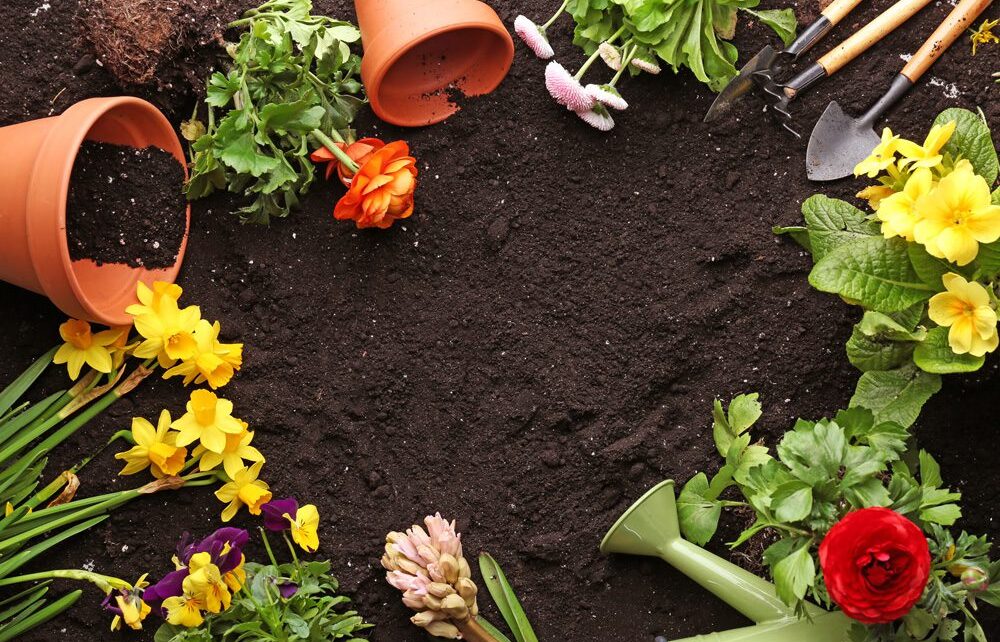Seeds to Sow: Planting an Aromatherapy Recovery Garden
For a successful recovery, each person has to find the methods and routines that are most meaningful for them, and they might vary quite a bit. But one universal wellness tip that’s true for all humans is that spending time in nature makes us feel better. So cultivating (pun totally intended!) a hobby such as gardening is a wonderful way to explore those good feelings.
Having a Green Thumb Makes You Less Blue
It might surprise you to learn that people have actually studied the effects of gardening and discovered a bushel of benefits:
Assistant professor Jennifer Shukaitis at Rutgers’ New Jersey Agricultural Experiment Station points out that since most gardening is done outdoors, being in the sunshine helps your body produce more natural vitamin D, an “important nutrient that supports your immune system and helps with calcium absorption and bone health. Just 10 to 15 minutes of sunshine on the arms and legs can be enough to meet daily requirements.” Sunlight also increases the brain’s production of serotonin, a “feel good” neurotransmitter that has antidepressant and anti-anxiety effects.
Extension educator Emily Hansen at the University of Minnesota states that “science tells us that humans have co-evolved with plants throughout time. Plants were a part of survival through food and shelter, but they also were spiritually and mentally beneficial. When we tap into this urge to connect with nature, it can help soothe modern anxieties.” She adds that gardening also encourages more mindfulness, and that even “one kind of bacteria [Mycobacterium vaccae] found in the soil has been found to stimulate areas of the brain and produce serotonin.”
Texas A&M Agrilife cites research conducted by professor Charles Hall, who says “being in naturalized settings and engaging in activities like gardening have a positive impact on people’s feelings of vitality and energy. Consequently, this has a significant positive effect on a person’s overall mental health.” Hall also mentions that gardening and plant care help “distract the mind and put it into a quieter and more relaxed state.” Indeed, there’s a certain amount of patience necessary to enjoy gardening, which can be a valuable asset in your recovery journey.
Do you need an acreage with different types of fruits and vegetables to reap the rewards of a garden? Not at all! We offer some ideas for creating an aromatherapy recovery garden, perfect for a balcony with potted plants or a small welcoming area outside your front door.
Best Flowers and Herbs for Recovery
Herbs and flowers have been used for centuries in myriad wellness applications, and aromatherapy is an easy holistic therapy for helping to achieve better calm, improved focus, and renewed energy. Here are some different plants to consider for your recovery garden. Make sure to check the USDA Plant Hardiness Zone Map first to confirm which ones grow best in your area.
Chamomile
The pleasing apple scent of chamomile is lovely enough, but scientists are fascinated by the potential of its anti-anxiety effects as well. German and Roman varieties are garden favorites, and often do well as houseplants. Dry snipped flower heads and steep for a soothing tea.
Lavender
According to the Icahn School of Medicine in Mount Sinai, the Latin root of the word, lavare, means “to wash.” This might be one of the reasons why people frequently use the floral yet woodsy lavender essence in their bath, as “research has confirmed that lavender produces slight calming, soothing, and sedative effects when its scent is inhaled.” Different varieties of lavender grow well both in the ground and in containers throughout the U.S. You can cut the flowers, dry them, and enjoy the relaxing aroma crushed into bathwater or in sachets under your pillow.
Jasmine
Some health experts state that this native of Asia has been used for centuries to reduce symptoms of depression and other forms of emotional distress. Both fruity and musky, jasmine has a rich, lingering fragrance that might boost GABA levels in the brain—a neurotransmitter that helps improve mood, ease stress, and promote more restful sleep. While most people use a jasmine essential oil, your garden will smell heavenly filled with these lush white flowers.
Various Mints
The sharp scents of peppermint, spearmint, wild mint, and holy basil (also known as tulsi) are thought to alleviate stress and clear your mind. Mint is another helpful plant to have in container pots (it will take over the garden otherwise!) as you can use both fresh and dried leaves in your bath and in tea.
More Addiction Recovery Solutions from Seabrook
Along with an aromatherapy garden, consider other wellness techniques such as breathwork, journaling, and yoga. If you’d like additional ideas, each of our four locations in New Jersey has expert staff members ready to explore more holistic methods as part of your daily recovery practice.




